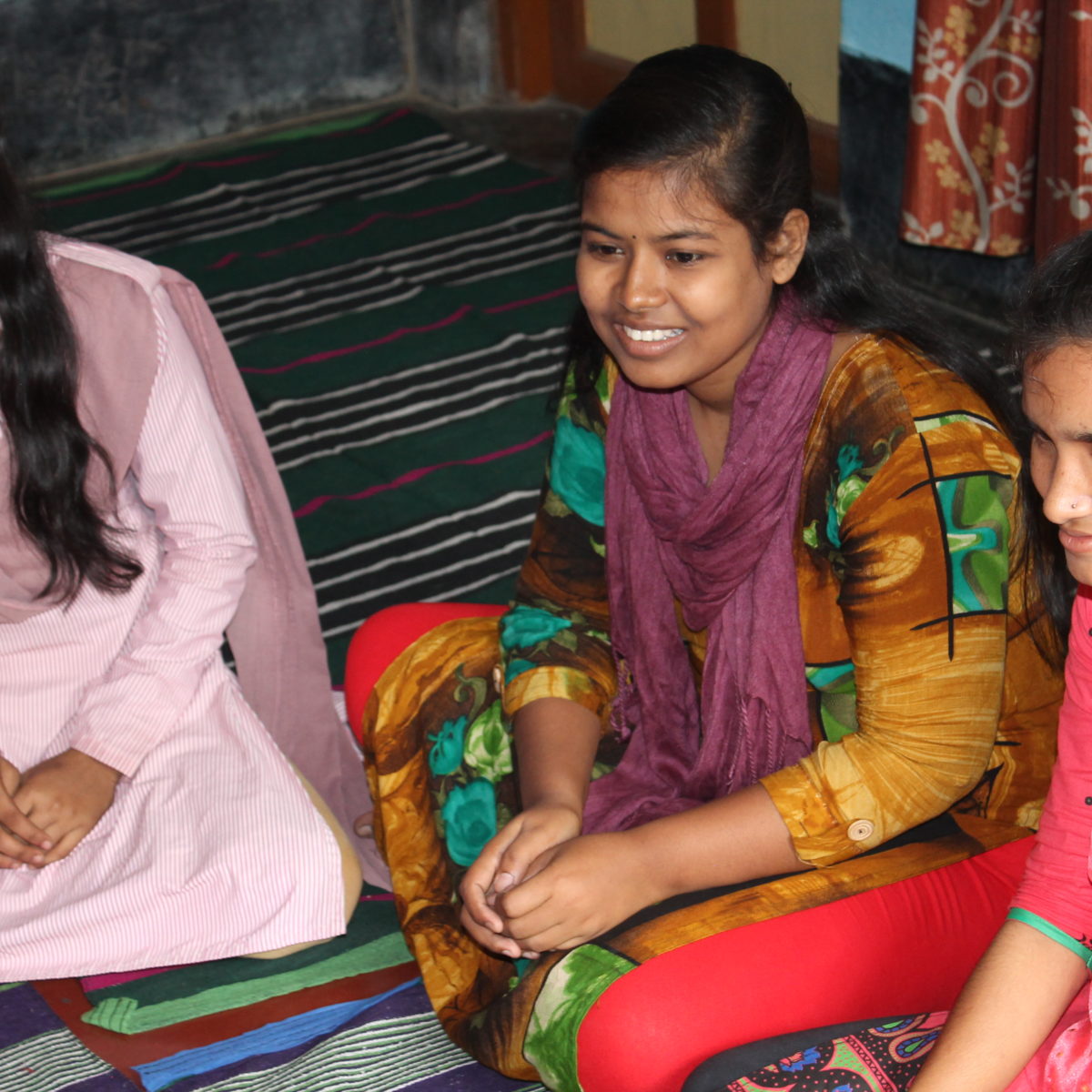
Blog
"These young women are the core of Shadhika. They are the foundation of why we do our work – why I do this work."
You Remember My Name
By Kendra Nicolai, Program Officer
February 20, 2020
Reading Time: 6 minutesIt is 4:00am as Sabah and I quietly leave our hotel and arrive at the train station in Kolkata. This is my first experience in a train station and taking a train in India. Arriving there, we find families sleeping among the hustle and bustle of people going about their travel day. We board the train with ease and enjoy the 4-hour train ride to Birbhum, where we are meeting with a Shadhika scholar from our partner site, Jabala. As we pull up to the station a few fellow passengers warn me that I only have a few moments to get my large suitcase down from the shelf and off the train before it starts moving again. I feel thankful for these gracious people around me and their timely advice ensuring that I safely disembark the train.
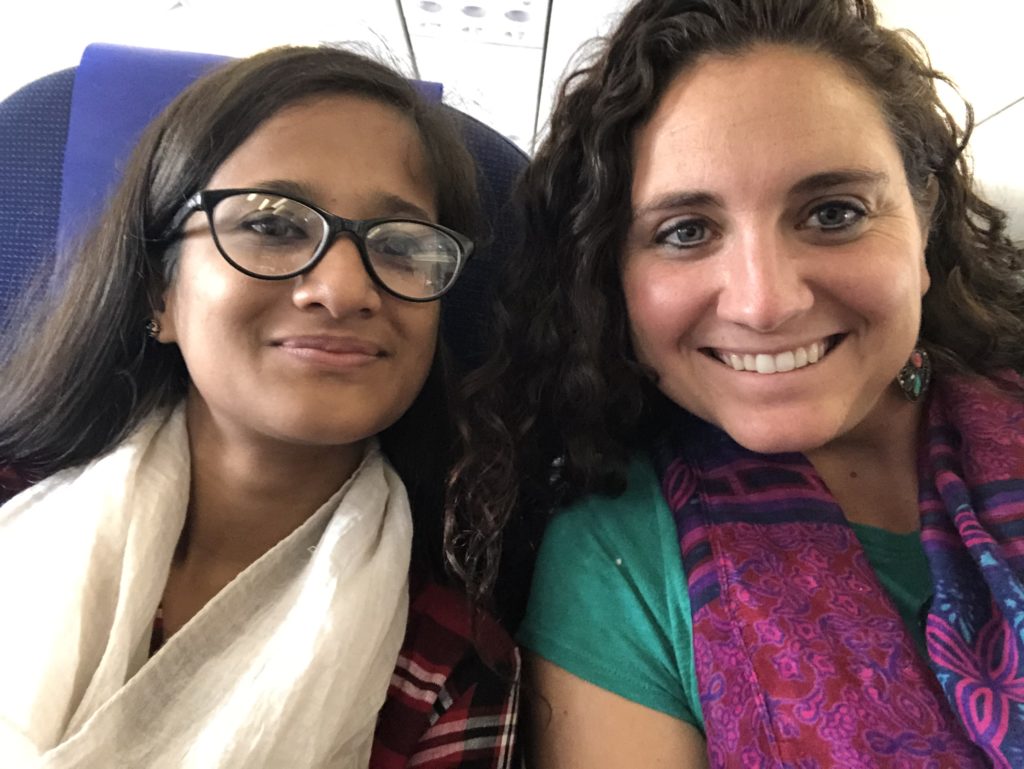
We find our taxi and head to the Jabala offices in Birbhum. The rural landscape in Birbhum is lovely – vibrant with trees, fields, and wide open skies. We arrive at the office which is tucked back from the main road in a peaceful setting. We are here to meet with Beauti, the only Shadhika Scholar from Jabala that lives in this village. I have not met Beauti yet, as she was unable to attend the Leaders for Change Summit. She was exactly as described by her NGO leaders, a quiet and curious young woman. Like all Shadhika Scholars, she is implementing a Community Leadership Project, specifically on the topic of “Access to Toilets.” Beauti takes us around her village to meet and speak with the women she has surveyed for her project. They are willing to speak to us about their challenges but are reluctant to figure out how to change their situations. They freely express these thoughts to us, while Beauti assured them that she will visit soon to talk about solutions. Her community has that “small town” feel as we walk through the village, meeting Beauti’s family and visiting her home.
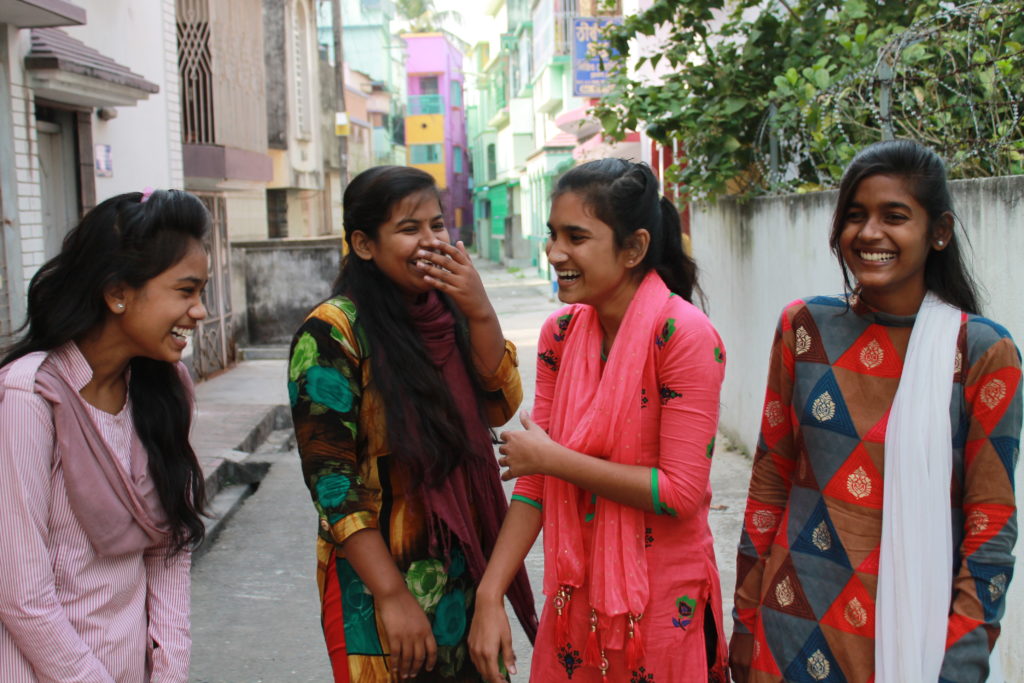
Leaving Birbhum, we continue our adventure with a 4-hour car ride to Murshidabad, where four Shadhika Scholars from Jabala live and attend college. The drive takes us along heavily trafficked dirt roads. The dust clouds are so thick we say a little prayer with each passing truck that barrels past in the opposite direction. Sabah and I sing and share stories about our lives in India and the United States to pass the time. We arrive in Murshidabad, dust ourselves off and settle in for the night. The next day, we arrive at the Jabala office in Murshidabad and see our scholars running down the alley, anxious to greet us. As we get out of our vehicle, the scholars run up to us excitedly saying, “We cannot believe you came all this way to see us!” It is a joyous, meaningful greeting, and I know we will have many things to catch up on.
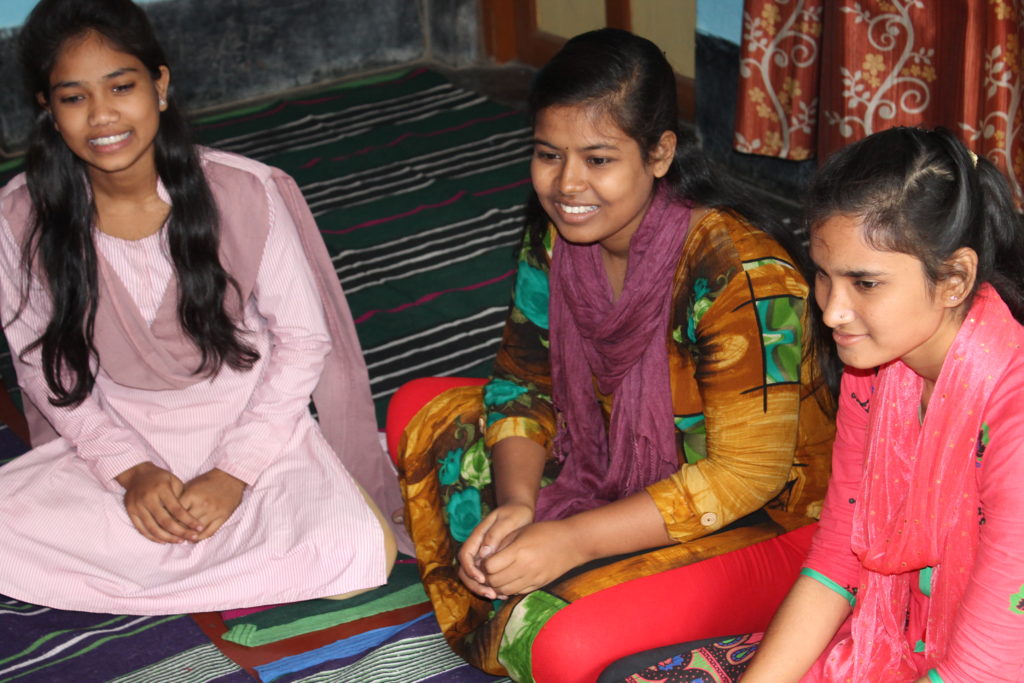
I greet each girl by name, chatting about our journey and am quickly given ginger tea as we sit on the floor of the office. Sitting close, Tajdina says to me, “I cannot believe you remember our names.” I am taken back by this – how could we forget your names? These young women are the core of Shadhika, they are the young women that I talk about endlessly to our donors, volunteers, friends and family. They are the foundation of why we do our work – why I do this work.
Throughout the day, the scholars share about their successes implementing their Community Leadership Projects and show Sabah and I a binder full of photos and documents showing the impact of their projects. Later, we have the opportunity to attend a high school to observe Nurmuhal give a presentation to a group of students. She shares with them about the importance of eradicating child marriage as a cultural practice and how to report child marriage if they see or hear about one happening. Nurmuhal is passionate about her project topic because she has stopped her own marriage, twice. After the presentation, she invites us to visit her family and her home. Her mother shares with us during the visit that she has changed her mind about child marriage and now believes young girls should be educated.
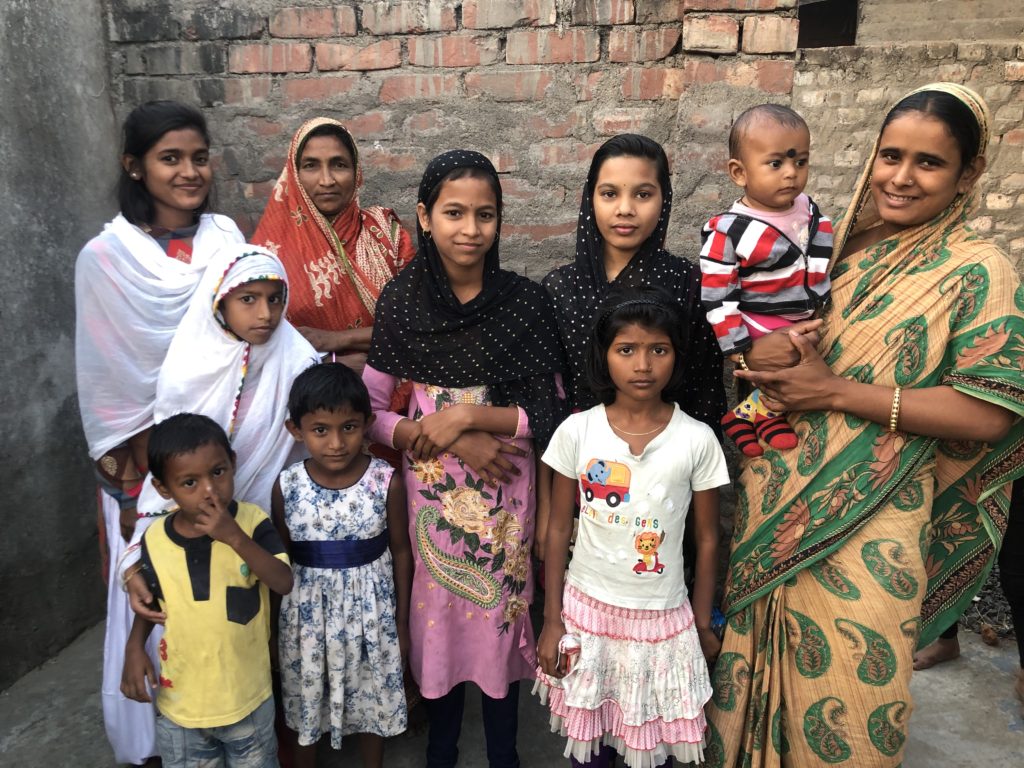
Leaving Nurmuhal’s house, we are stopped by a few of Jabala’s peer leaders who ask us to come to their peer leader meeting. We walk to their meeting spot, which is situated between a row of mud huts. I anticipate just chatting with them about Shadhika, our mission and hearing stories about their journey to becoming a peer leader. Instead, I am pleasantly surprised at the amount of questions these young women have, not about Shadhika, but about adversity, overcoming challenges and about issues in the United States. We dialogue together until it gets dark and we need to leave, but these girls follow us and keep the conversation going until our car drives away.
As I reflect on this visit to Jabala, I am blown away by the curiosity, desire to understand and the intellect of these peer leaders. What strikes me the most is their desire to relate to me, wanting to understand how I overcome challenges and how I stand up for girls’ rights. I am challenged by their questions and thoughts, and I hope we will meet again someday.
Sometimes I believe it is the little things that make a powerful impact – like showing up to a rural village and remembering the name of a young woman who eagerly wants to succeed in life. It’s taking time out of a very busy schedule to allow for a detour that leads to an open conversation with curious girls about how we all face challenges in life. Sometimes, its just simply listening.
Read more